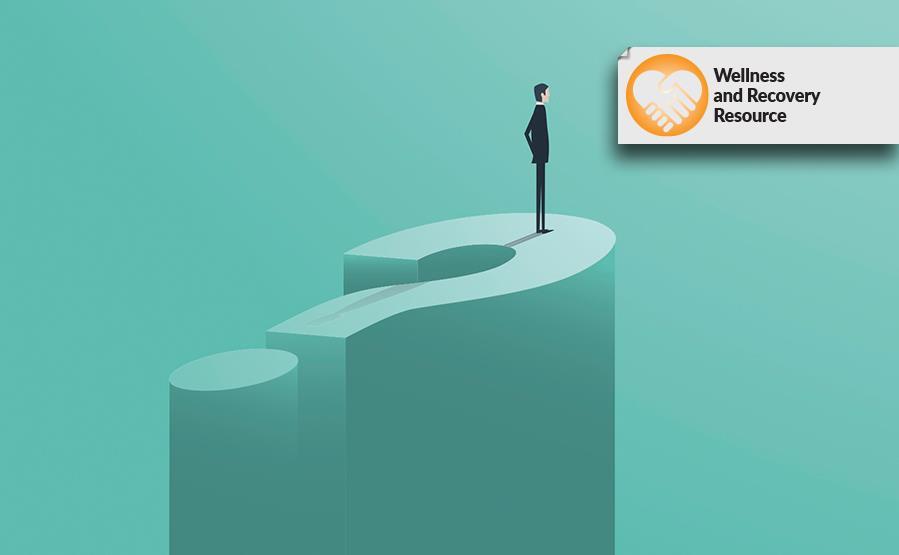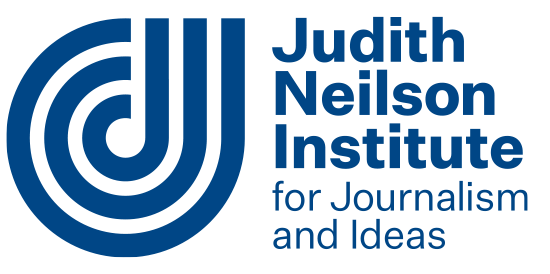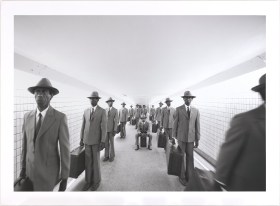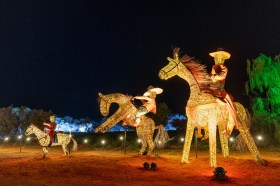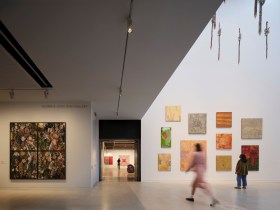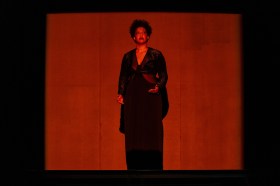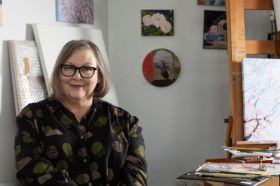The new normal? Living in unprecedented times? Coping with the new set of conditions created by the spread of COVID-19 has been the theme of 2020. While there has never been certainty, the need for rapid adjustment has heightened the sense of moving into an uncertain future.
Stepping into the unknown is not new to artists – there are few conventional paths and the act of creating requires some trial and error and a dash of blind faith. Nonetheless, sustaining arts practices in such strange times calls for some reflection and strategy, and writers and philosophers of the past can be valuable strategists for the present.
While we don’t know what the future holds, we have some idea of what has transpired.
There is a comfort in understanding our present as being a brief moment in time between the past and the future. How have philosophers of the past coped with facing an uncertain future and how are these strategies aligned with different therapeutic approaches?
In the early days of the current pandemic, there was a spike in sales of The Plague by Albert Camus. An obvious place to start in a tour of different philosophical approaches to uncertainty is existentialism. In The Plague, Camus wrote a fictitious account of an epidemic in the French Algerian city of Oran. Oran was actually the site of several epidemics, including cholera in the 1800s and bubonic plague in the 1500s and 1600s. Camus’ fiction is set in the 1940s however, and is understood to be an allegory for the Third Reich. Like other existential works of the time, the book explores themes of death, meaninglessness, isolation and freedom – the four main themes taken up by existential therapy.
Read: Why right now is the perfect moment for hope
The absurdity of our lives against the vicissitudes of nature and fortune might prompt us to wonder what is the point of it all? Existential therapy holds a space for both accepting our limited control, while moving from a place of personal authenticity to create meaning in life – by living in accord with our own values.
If you’re interested in further exploring existential therapy, Existential Psychotherapy by Irvin Yalom and Man’s Search for Meaning by Viktor Frankl are great books to start with.
The Buddhist (and Hindu) notion of duḥkha – that the experience of suffering, sorrow and distress is inherent to life – seems somewhat disheartening when taken in isolation. When understood in terms of Buddhist philosophy more broadly however, our acceptance of duḥkha is a strategy to avoid further unnecessary distress.
Buddhist teachings have been drawn on to see our way through the current pandemic, including accepting fear and uncertainty as part of life. Acceptance and commitment therapy is an approach that incorporates aspects of Buddhism. It encompasses mindfulness techniques including meditation, and ideas related to accepting painful feelings, avoiding being ‘hooked’ by certain thoughts, and once again, understanding our values and acting in alignment with them.
The Happiness Trap by Russ Harris is a very accessible introduction to acceptance and commitment therapy approaches.
Although more rational in orientation, Stoicism also shares the idea of accepting what is out of our control and working only on what is in our control. In the pursuit of goals, Stoicism encourages us to not attach ourselves to outcomes, and to approach adversity with equanimity. Like mindfulness, reflection is key and creates distance between strong emotions and actions.
Rather than responding reactively, Stoicism encourages pausing in order to rationally consider our initial thoughts and feelings. This is consistent with cognitive behavioural therapy approaches, which espouse challenging limiting beliefs and finding healthier ones, in order to support more productive behaviour. The virtues of prudence, justice, temperance, and fortitude are central to Stoic philosophy.
Read: Courage vs confidence
In common with existentialism and Buddhism, Stoicism also advocates the idea of acting on our own accord, not in order to please others. Read Letters from a Stoic by Seneca for an introduction to Stoicism. MoodGYM Cognitive Behaviour Training is an online self-help program developed by the Australian National University that teaches cognitive behaviour therapy skills.
To swing from the rational to the spiritual, animism is not associated with a particular school of thought, but is a world view shared by a diversity of cultures that sees all things as being imbued with a soul. In this world view, humans are not held as superior to animals, plants and the elements of nature.
The spread of a novel virus, and the various and significant ripple effects of our attempts to contain it, show just how entangled our actions are with the natural world. Changes in our behaviour during this time quickly gave space for positive environmental effects with a reduction in pollution and increase in wildlife sightings.
A trending therapeutic approach known variously as ecotherapy or green therapy facilitates a reconnection with nature through a variety of activities, including gardening, farming, bushwalks and arts and crafts. The approach has been associated with improved self-esteem, wellbeing, social inclusion and connection to nature. To read more about this approach look up Nature and the Human Soul by Bill Plotkin.
As I’ve written elsewhere, artists often work from a place of values and few artists choose this work to conform to society’s expectations. The work rarely comes with big financial reward or external trappings. In many obvious ways this is harder than conventional careers, and nothing has highlighted the precarious nature of work in the arts like the current restrictions.
However, like philosophers, artists have the capacity to look beyond the mundane to imagine what is possible – along with the passion and personal integrity to work toward making that reality. While the future is uncertain, no-one knows better than artists and philosophers that it was never certain. But there are things in our control, not least of all our own values, beliefs and principled action.
The Wellness and Recovery Resource is supported by the Judith Neilson Institute for Journalism and Ideas.

